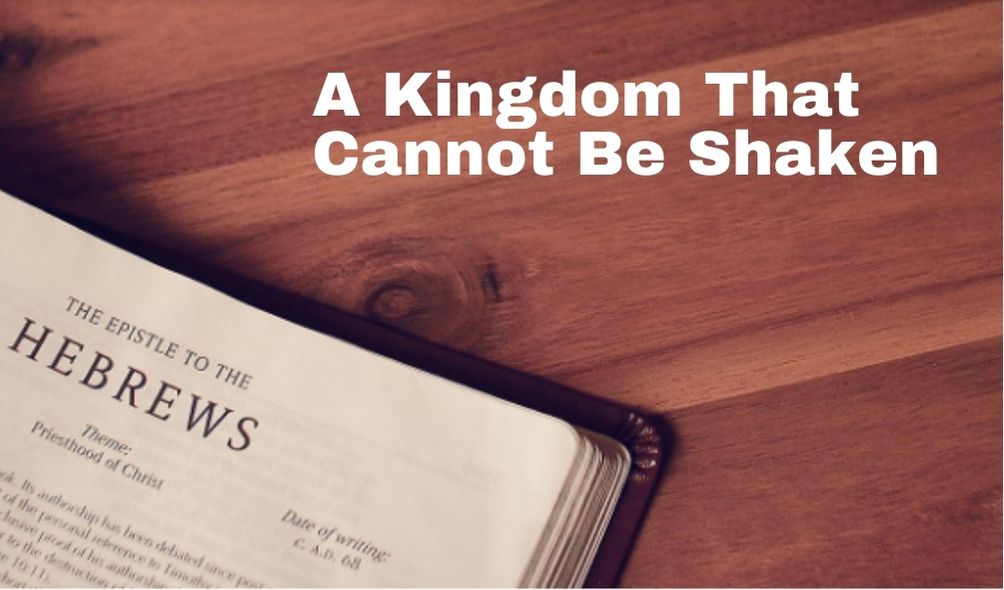August 28, 2022 Preaching | Ptr. Keith Shubert
Catastrophic events, like 9/11 in the United States and Imperial Japan’s bombing of Manila in the Philippines, have the power to shake nations. In this passage (Hebrews 12:18-29), the author encourages the early church to look forward to a kingdom made only of things which cannot be shaken. Until then, they are tasked with living in faith and warned against disobeying Christ. This theme is echoed in previous chapters of the book of Hebrews, including thorough warnings against four specific dangers. Each of the following can help us examine our lives and guard more faithfully against these risks.
- Warning against the danger of drifting away (Hebrews 2)
The first danger to guard against is the tendency to hear the Scripture but not obey, which can lead a believer to drift away from God. A cautionary example is the story in Numbers 15 of the Israelite who gathered sticks on the Sabbath day. Because he had violated the Mosaic law, the Lord confirmed that he had to be put to death, and the man was stoned. It is a stark reminder not only that every transgression receives a just penalty (Heb. 2:2), but also of the expectations for believers today. The Mosaic law was given to Moses through angels and, evidently, was strictly enforced in their times. We have since received a superior revelation from Jesus himself, and now know more about who He is and how we ought to live as His followers. To whom much is given, much is required.
Ask yourself: Have I drifted from my walk with God?
- Warning against the danger of disobedience (Hebrews 3)
The generation which Moses led out of Egypt was notoriously disobedient. Like every believer, they had started by faith, marking their doors with the blood of a lamb, as instructed to avoid the angel of death. Yet they failed to live by faith. The Israelites of the time hardened their hearts against God by grumbling and continuing to practice sin rather than turning from it (Heb 3:8). He was so angered by their disobedience (Heb. 3:10) that he waited for that generation to die, except for two faithful leaders, before giving His people rest in the promised land. Christians are prone to the same cycle. Perhaps you have a habit of speaking unkindly to your family members or have become entangled in an ungodly pursuit or relationship. The longer we live in any sin, the more acceptable it begins to feel and the less tender our heart becomes towards God.
Ask yourself: Am I living in disobedience, thus hardening my heart toward Him?
- Warning against the danger of carnality (Hebrews 5)
Your spiritual maturity depends on your relationship with God, and relationships are always progressive. If it is not improving, it can only be deteriorating. While many in the early church of Hebrews should already have progressed enough to teach younger Christians, the author calls them infants in the faith (Heb. 5:13). Being a mature Christian is determined not by your age or what you know, but by how you live your life. Growing in the faith requires practicing obedience to the Lord, such that you learn to distinguish His ways from the world’s carnal ways (Heb. 5:14). The example of the Hebrews believers shows that one can walk with God and mature spiritually, but then fall away because one disobeys by failing to deal with sin. It is therefore crucial that we grow in Christ day by day, spending time in prayer, reading Scripture, and repenting from our sins.
Ask yourself: Am I maturing in my walk with God or am I regressing?
- Warning against the danger of shaming God (Hebrews 10)
The fourth danger to avoid becomes clear when we understand the gravity of disobedience from God’s perspective. According to Hebrews 10, believers who persist in sin despite knowing the truth should expect judgement, fire and fury (Heb. 10:26). Such acts, in the Lord’s eyes, effectively equate to the trampling underfoot and regarding as unclean the blood of His son. They are insults to the Holy Spirit (Heb. 10:29). The severity of this punishment again accounts for the fact that we have the privilege of knowing much more about the Messiah than the saints of old. As the one who established these laws, God is responsible for enforcing them, just as a schoolteacher must grade their students according to the established grading criteria. Both have the prerogative to exercise grace. But the character of God as a loving and just father who judges his children is at stake. It is no wonder that the author cautions: “It is a dreadful thing to fall into the hands of the living God.” (Heb. 10:31).
Ask yourself: Am I shaming God by some of the things I’m doing?
The Position of the New Testament Believer
Judaism was founded on Mount Sinai, where God revealed himself in such awesome splendour that even Moses was fearful (Heb. 12:18-21). Today, believers of the New Testament are at Mount Zion, where we will celebrate with God, Jesus, the angels, the Old Testament saints, and the rest of the Church. This honour brings greater responsibility to live our lives in obedience to Christ. The author highlights two reasons for doing so: the first is God’s justice and punishment, which he describes in Hebrews 10. The second is the eternal and unshakeable kingdom, which references God’s promise in Haggai 2, that we will one day have the right to call home.
In our spiritual journeys, we can use the warnings in Hebrews to avoid common pitfalls and stay the course of obeying our Lord.
